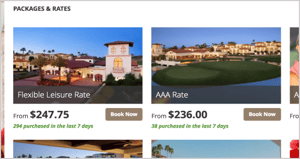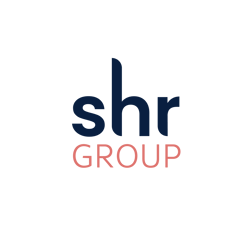Contributed by Paula Perrin, Sr. Market Analyst, SHR

"Without a real revenue manager, we would have chaos. There are too many channels, group rates, and relationships out there to manage on our own."
If you’re feeling the squeeze these days on your hotel budget, you’re not alone. According to the 2017 Lodging Technology Study, 48% of hotels around the globe will be upgrading their property management systems, 24% their central reservation systems, and 16% their revenue management systems. While having the right technology is crucial to growing and managing revenue, there is still the need for expert human interpretation and interaction with those technologies to make the most of what they can offer. This is where a professional, dedicated Revenue Manager (RM) can make the difference between merely surviving or thriving in your market.—Tim Reed, General Manager, El Tropicano Riverwalk Hotel

Tim Reed, General Manager of El Tropicano Riverwalk Hotel, understands this well. After seven years of trying different strategies with uneven results, he knew he needed help and that, in his case, he wanted to go outside for that help to get a different perspective. “We had reached a point where we had become reactive to our market instead of proactive,” Tim said. The biggest question Tim faced is the same question every hotelier faces every day; how to deal with competition without ruining your ADR. With the help of his new RM, here’s what he learned.
Rate Dropping? Not So Fast
It’s up to a smart revenue manager to do his or her homework when it comes to forecasting and understanding guest segments and who is reserving your rooms. A common challenge for hoteliers in our OTA-centric booking world is capturing guests within a very narrow window of time. “Our guests literally decide to come to the hotel on the spur of the moment,” Tim said. Because of this, opaque channels like Priceline and Hotwire can understandably become the norm for hotels instead of the exception. “Because of this, we had become obsessed with simply selling out,” he explained.
What do you do if competitors are dropping rates? Even though it may be tempting, dropping your rates to simply to meet a competitor's can often be seen by the guest as a lack of rate integrity. It’s better to lower your rates only in the context of a special, limited-time value, like a “last minute discount” for instance. However you decide to frame it, be careful how low you go or you may find yourself competing with hotels not really in your market, hurting your branding in the long run. This is where focused reporting from your distribution technology can come in handy, especially as interpreted by a competent RM. With it, you’ll be able to see the big picture and head off unnecessary rate drops.
However you decide to frame it, be careful how low you go or you may find yourself competing with hotels not really in your market, hurting your branding in the long run. This is where focused reporting from your distribution technology can come in handy, especially as interpreted by a competent RM. With it, you’ll be able to see the big picture and head off unnecessary rate drops.
The Power of Length-of-Stay
Like many hoteliers, focusing attention on your peak nights, or even one day, is a common approach when it comes to ADR. You’re more likely, though, to have sustained growth when your overall revenue strategy focuses on length-of-stay restrictions. Say it’s New Year's Eve, and you want to be able to offer rooms to guests who want to stay beyond the holiday. Your RM might recommend setting your minimum at two nights. Or if you have a big group getting a substantial discount, a maximum stay restriction might be in order after considering how many rooms could be sold to other customers at higher rates. By using these types of strategies, you’re maximizing on both your shoulders and your peak dates. For Tim, this has made a huge difference in their outcomes from when they were only concerned with filling up. “Now we look at everything—our groups, rates, local demand generators, and the compression from big events,” he reported.
Maximize Room Types, Raise Your ADR

It’s important to analyze your room types to help raise your ADR. “We do 70% of our leisure business via the OTAs,” Tim said, “so we need to make the most of our rates.” For instance, you don’t want to be selling your Standard Room for the price of your competitor’s Deluxe Room. You need to see what your competitors are offering, adjusting as you go, and this includes seasonal changes, to see what rooms are selling when. Also, don’t forget the non-rate perks that can be perceived as room upgrades, such as late check-out, free breakfast, or other add-ons that matter to that guest or group.
A Strategy for the Future
The role of revenue management in today’s hospitality landscape has evolved into a vital and necessary aspect of the hotel business model, with the RM working side by side with management. And this is a very good thing. For Tim, the biggest difference in having a dedicated RM is the sense of control and security it provides, immediate and long-term. “Before our RM, we were only looking toward the end of each month. Now we’re looking a full six months out,” he said. “If it’s a Tuesday and I have 122 rooms to book by the weekend, I’m not worried anymore because we have a workable revenue strategy now.”
The bottom line? By choosing a dedicated RM, you are really choosing to make the most of your hotel technology and your brand, ultimately delighting and building loyalty for your guests, helping you carve out—and keep—your rightful place in the hospitality landscape.


